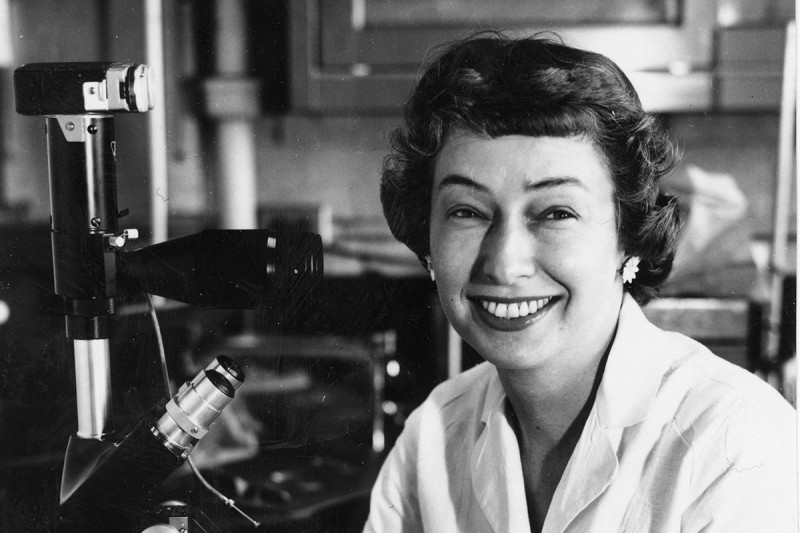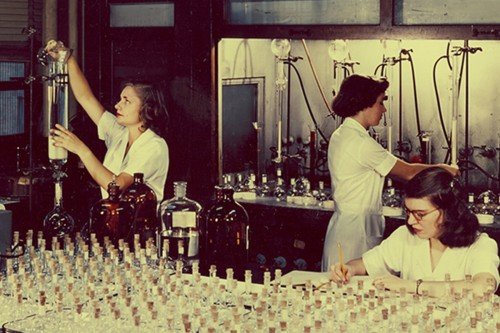
Microbiologist Charlotte Friend, a member of the Sloan Kettering Institute from 1950 to 1966, changed scientists' views of viruses and cancer. Photo courtesy of Mount Sinai archives.
In the 1950s, the idea that cancer might be caused by a virus was somewhat heretical. Most known viruses caused infectious diseases like the flu and chicken pox. Cancer was not known to be contagious.
So when Charlotte Friend, a microbiologist working at the Sloan Kettering Institute, presented evidence for a viral cause of leukemia to an audience of researchers in 1956, she caused quite a stir.
“By no stretch of the imagination could the violent storm of controversy that erupted after the presentation have been anticipated,” she said later.
Dr. Friend had found that a particular virus caused leukemia in mice. Though controversial at first, her findings were soon replicated by other scientists. They helped to bring the subject of viral oncogenesis from the fringe to the mainstream. The virus she discovered is now known as the Friend leukemia virus.
“No one who works on tumor viruses fails to be touched by the contributions of Charlotte Friend,” wrote her biographer.
Dr. Friend left SKI in 1966 to become the first Director of the Center for Experimental Cell Biology at the Mount Sinai School of Medicine. There, she made another far-reaching breakthrough, this one related to cell differentiation. She discovered that a chemical called DMSO could spur leukemia cells to become red blood cells — effectively returning cancer cells back to normal. This discovery would inspire subsequent research on epigenetic cancer therapies.
In addition to being a trailblazing scientist, Dr. Friend was also an outspoken critic of sexism in science. For example, she defended Rosalind Franklin’s contributions to the discovery of the structure of DNA, alongside those of James Watson and Francis Crick.
Dr. Friend was also an outspoken supporter of academic freedom. She wrote letters to newspaper editors defending blacklisted academics and dissidents during the McCarthy era. And she made a point to nominate women to scientific positions.
“[She] will be remembered for the encouragement and help she gave others as well as for her seminal scientific contributions,” recalled her friend and colleague Leila Diamond in an obituary.
Dr. Friend died of lymphoma in 1987 at the age of 65.



